Statement made before Judge Fitzpatrick, Feb. 14, 2022.
First I want to acknowledge that we are meeting on the unceded historical territories of many indigenous groups: the Musqueam, the Squamish and Tsleil-Waututh. Over in the area of the tree sits, where I was arrested, the Kwet Kwitlem and the Qway Qwayt.
I want to acknowledge their leadership in this struggle against the construction of Trans Mountain Pipeline, in terms of legal cases, past and ongoing ceremonies, arrests, and inspiration to stand up for this planet. I am very grateful for their courage and persistence. So many defendants before me have made eloquent sentencing statements outlining the rational reasons why they opposed the building of this monstrous pipeline. They have covered the biological, engineering, economic, ethical and environmental reasons. I do not intend to repeat them here in court.
The economics have changed since 2014, but the scientific facts and ethics of the matter have not changed. What has changed in that 7-year timespan is the mounting urgency of the calls of the International Science Community to stop putting more carbon into Earth’s atmosphere.
However, I want to address the Court personally, not argumentatively. What I do want to communicate to the Court is my personal motivation. Why would I, for the first time in my 80 years, deliberately break the law, as it is represented by this Injunction, and in this public manner, as a member of a Prayer Circle? I am not crazy, I am not malicious, I am not a saboteur, I am not disrespectful. I am an old lady at the end of an active and blessedly privileged life.
This is who I am: I was trained as a scientist, B.Sc. 1964. I taught Science as a CUSO volunteer in a secondary school in Nigeria. I appreciate cause and effect, I love clear observations. I hate double standards. I have a great aversion to hypocrisy. I examine my life – I have been doing that consciously for many years as a Buddhist practitioner. I try to live out my values.
And what are my values? They are the values of the community of my church. I am a 45-year member of the Unitarian Church. We are a small progressive church with roots going back 500 years.
We do not have a creed. Instead we covenant with each other to affirm and promote 8 Principles. We add principles periodically. In 1985, after two to three years of discussion and exploration, we added the 7th Principle: “We covenant to affirm and promote the interconnected web of all existence of which we are a part.”
That principle motivates me to civil disobedience.
So, let’s look at it: the interconnected web of all existence of which we are a part … That means interconnections of the plants and animals of the planet. Inter being of plants and animals, and us, the climate, the heat, the cold. Inter-dependence when we think about the distribution of water, the balance of gases in the atmosphere, the pull of gravity of the moon and the planets, the distribution of metals in the stars…the interconnected web of all existence of which we are a part.
And it goes both ways – this is an interconnected web. The collective health of all the plants and animals on earth is affected by humanity, their activities, their appearance and disappearance. Will the stars miss us – not so much! But if we change our activities, the air and the waters will slowly change. We already have plenty of evidence that species will repopulate protected natural preserves. There is real hope in that.
Other motivating values: I treasure a life out-of-doors. All my life, from earliest childhood, I have been active out of doors, hiking, climbing, back packing, skiing, berry picking, sailing, paddling, and all close to home on the North Shore, all part of what my family did. I was so blessed. I have kept up most of these activities into my old age.
When I became too old to take arduous week long kayak trips, I continued to paddle in Indian Arm, day trips, along the shores, slowly, pausing to just sit, with my paddle resting across my boat, to listen, to feel the rise and fall of the water under and around me, lifting me quietly, gently. It was the familiar feeling of being rocked in the arms of a beloved, and it is the peace I sometimes, rarely, achieve in meditation. When I recognized that, I knew I had to protect those waters. I had to line up with those already active protecting the inlet, from the destruction of inevitable oil spills.
That was when I started to become active, attending National Energy Board hearings, writing letters, attending rallies, meeting with my MP. There was a growing rage in me, which did not improve my life. I discovered the Prayer Circle, in 2019 and it offered a much needed respite from anger, and a way to be active, peacefully.
Other Motivations: I am blessed with good health. My good health may be part of my privilege, that I always had clean water, good food, good
education, parents who taught me to live large parts of my life out of doors in the mountains and on the water.
Perhaps my good health is privileged, and privilege going back several generations…Perhaps it is a genetic gift. Other tendencies may be genetic too, the tendency to work for the good of my larger community runs in the family.
Let me explain.
My grandfather, a Montreal surgeon, decided at age 53, in 1914, to move his family to England, so he could join the British Medical Corps. He served out World War I in France, Belgium and England doing army surgery and then returned to Montreal.
My father, in 1939, joined the Royal Canadian Navy Volunteer Reserve, at age 39. He served on corvettes across the Atlantic for the duration of World War II.
Neither my grandfather nor my father knew, when they decided to stand up for the good of their communities, what would be the outcome of those conflicts. They didn’t know which side would win.
I have known for years the short-term consequence of standing up against this pipeline. I will serve my time, without complaint. However, I don’t know what will be the long-term outcome of my standing up for the safety of my community, for the benefit of my children and my grandchildren. I will not live to see the results. I am doing it anyway. I believe I am on the right side of history.
I am healthy, I have no job to lose, no fear of being blacklisted, I have no ambitions to travel internationally. I am a mother and a grandmother. I am painfully aware of the inevitable climate changes that lie ahead.
Considering all that, and my values, I would be ashamed, on my death bed, if I had spent the last years of my life sitting on the sidelines, closing my eyes, merely amusing myself, and doing nothing to stop this monstrous pipeline expansion pouring carbon into the Earth’s atmosphere.
I do this peacefully, non-violently, and full heartedly.



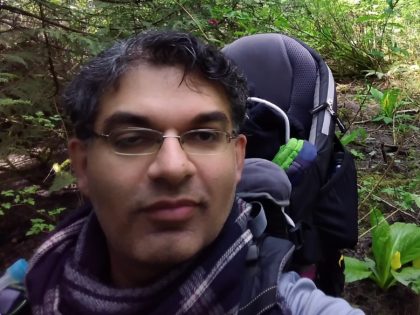


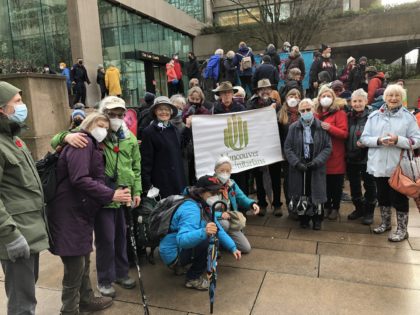
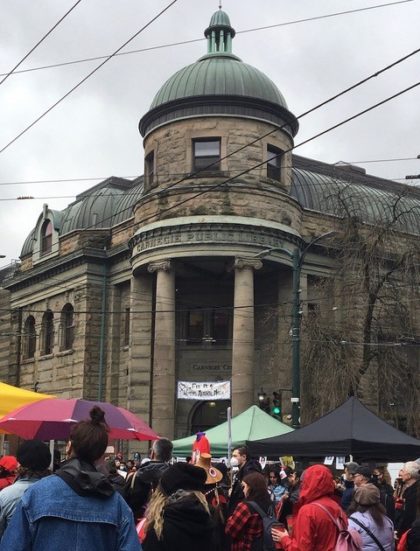
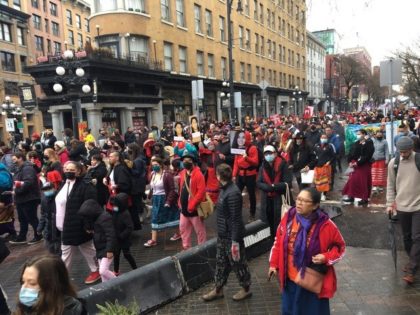


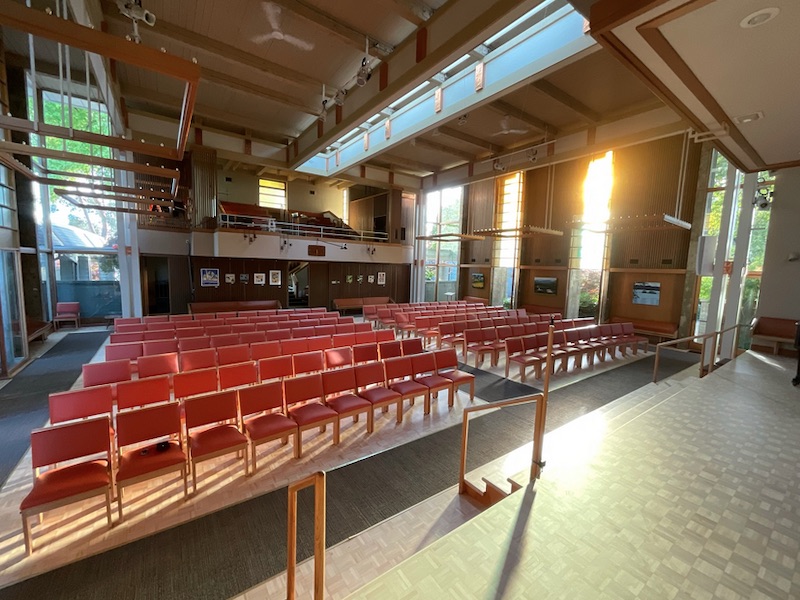



You must be logged in to post a comment.